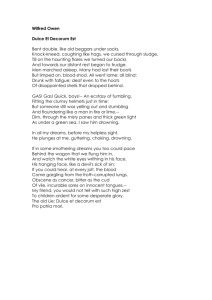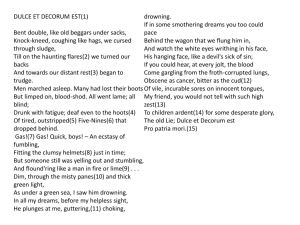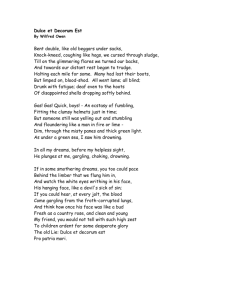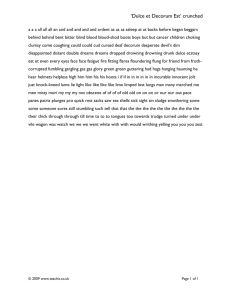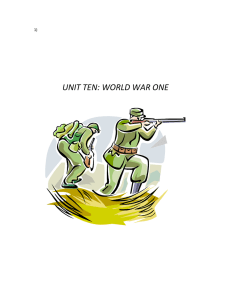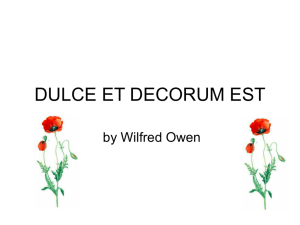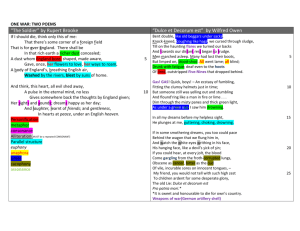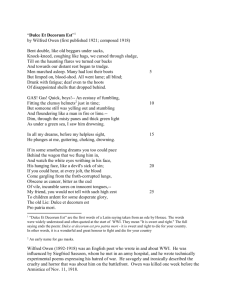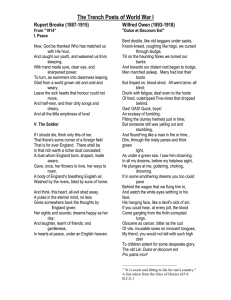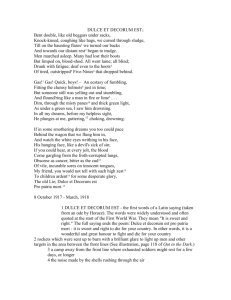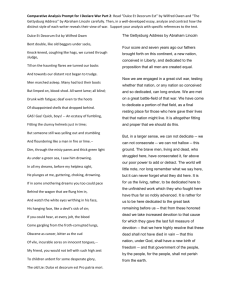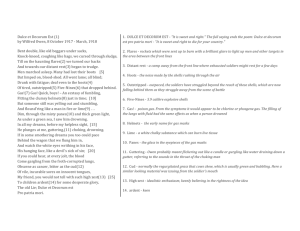Dulce Et Decorum Est
advertisement
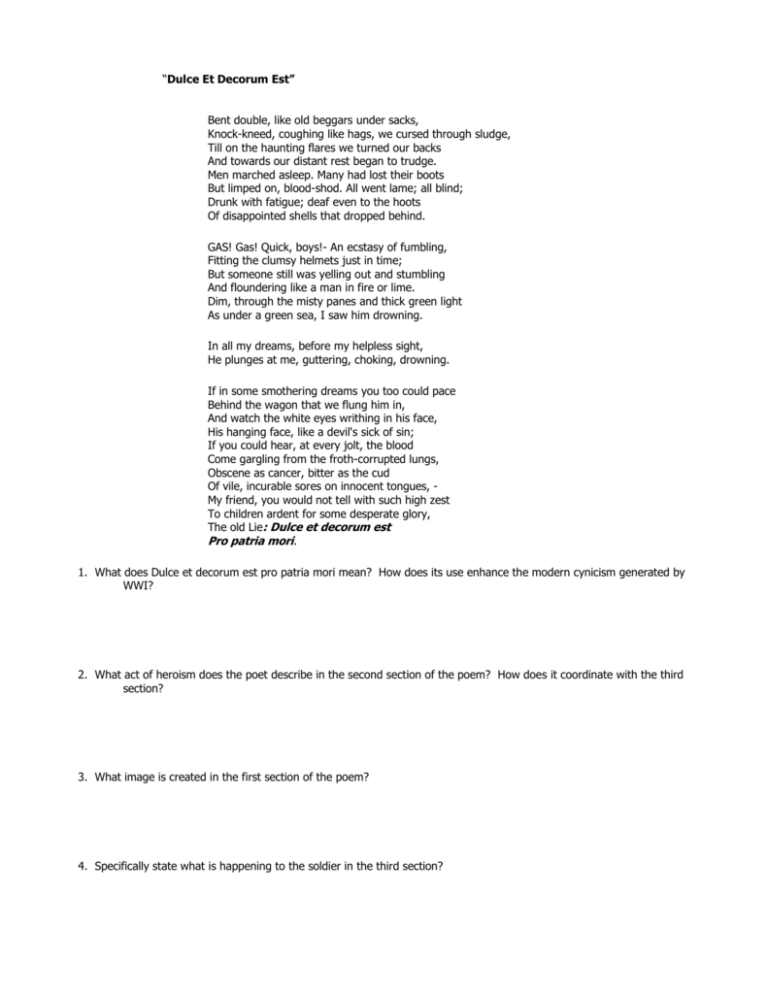
“Dulce Et Decorum Est” Bent double, like old beggars under sacks, Knock-kneed, coughing like hags, we cursed through sludge, Till on the haunting flares we turned our backs And towards our distant rest began to trudge. Men marched asleep. Many had lost their boots But limped on, blood-shod. All went lame; all blind; Drunk with fatigue; deaf even to the hoots Of disappointed shells that dropped behind. GAS! Gas! Quick, boys!- An ecstasy of fumbling, Fitting the clumsy helmets just in time; But someone still was yelling out and stumbling And floundering like a man in fire or lime. Dim, through the misty panes and thick green light As under a green sea, I saw him drowning. In all my dreams, before my helpless sight, He plunges at me, guttering, choking, drowning. If in some smothering dreams you too could pace Behind the wagon that we flung him in, And watch the white eyes writhing in his face, His hanging face, like a devil's sick of sin; If you could hear, at every jolt, the blood Come gargling from the froth-corrupted lungs, Obscene as cancer, bitter as the cud Of vile, incurable sores on innocent tongues, My friend, you would not tell with such high zest To children ardent for some desperate glory, The old Lie: Dulce et decorum est Pro patria mori. 1. What does Dulce et decorum est pro patria mori mean? How does its use enhance the modern cynicism generated by WWI? 2. What act of heroism does the poet describe in the second section of the poem? How does it coordinate with the third section? 3. What image is created in the first section of the poem? 4. Specifically state what is happening to the soldier in the third section?
